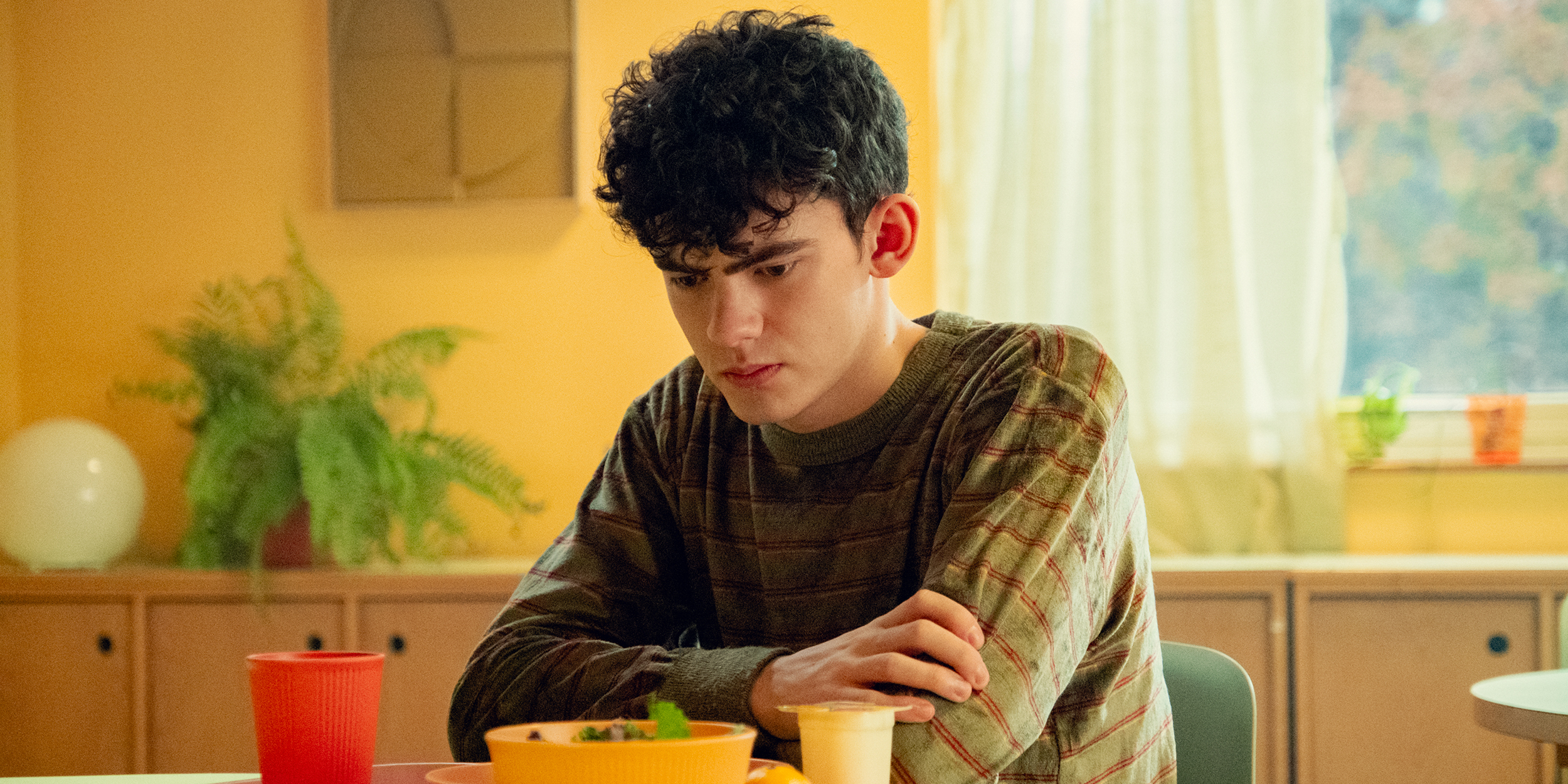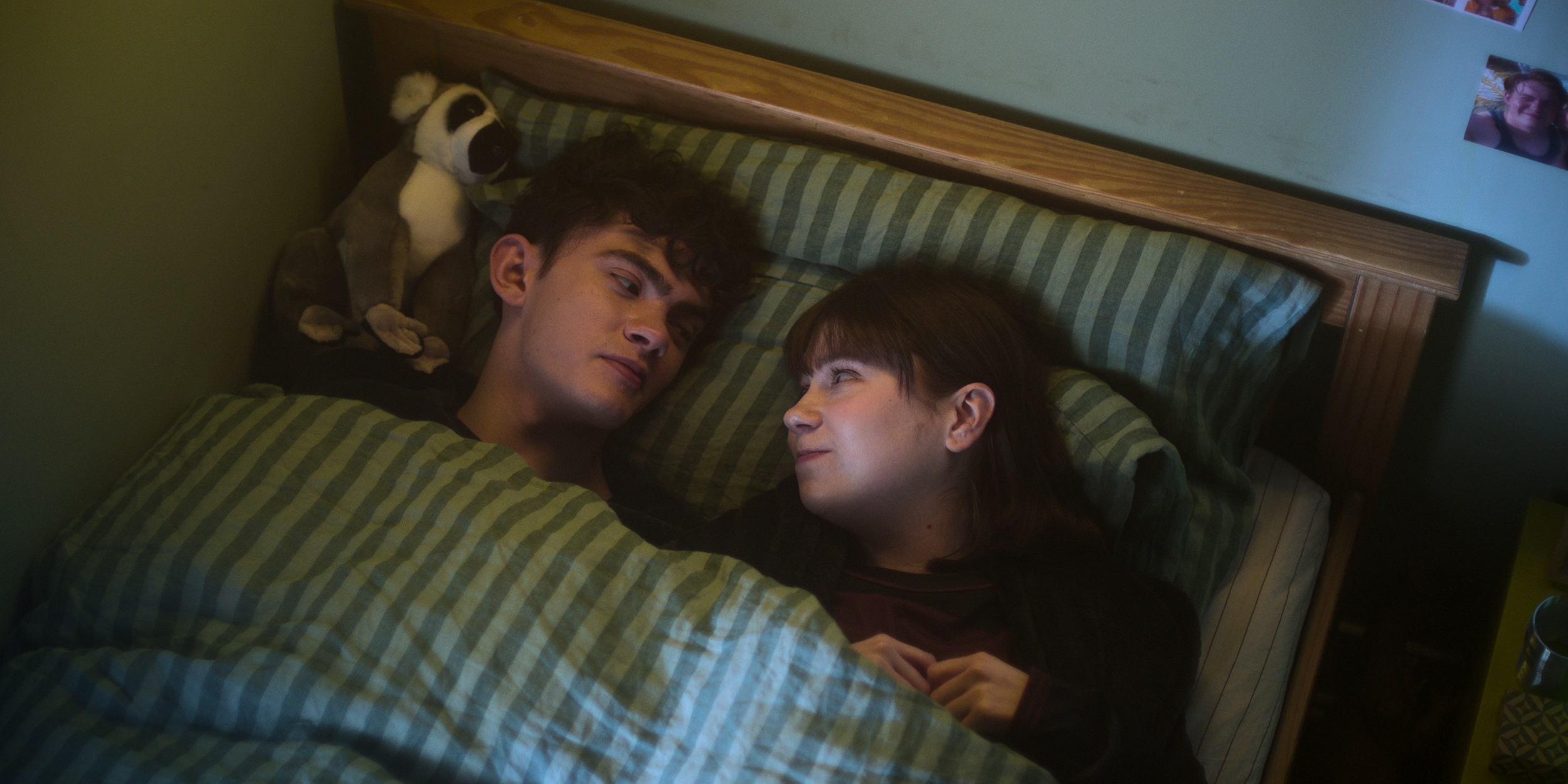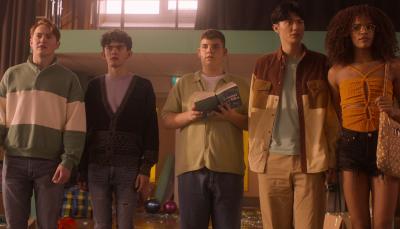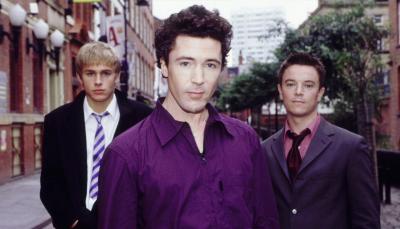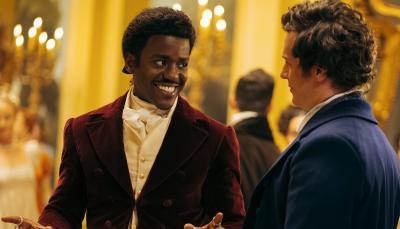'Heartstopper' Season 3 is Growing Up & Growing Into Tough Conversations
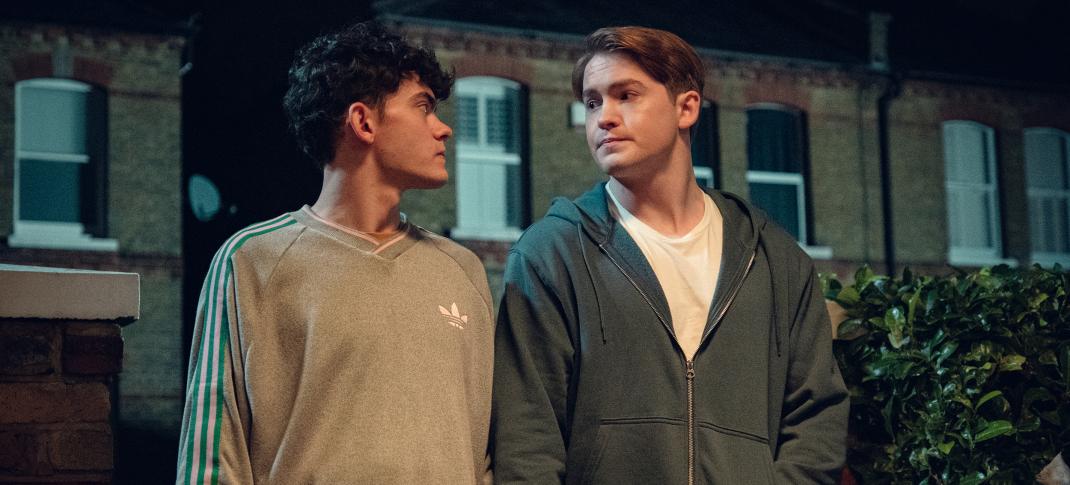
Kit Conner as Nick and Joe Locke as Charlie in 'Heartstopper' Season 3
Samuel Dore/Netflix
Please be advised, this season of Heartstopper (and this review) contains discussions of self-harm, eating disorders, body hatred, and mental health issues.
Once a bestower of queer joy the world over, Netflix’s Heartstopper is growing up and growing out of its cozy beginnings in its third season, which arrived in full on Netflix on Thursday, October 3, 2024. It is, candidly, an extremely rough watch. This season will no doubt hit home for anyone who is or has ever loved someone with mental illness and anyone who is or has ever been a queer teenager. But much like the characters’ hardships are worth enduring, this season of Heartstopper is worth watching for the catharsis it brings.
Based on the wildly successful webcomic by Alice Oseman, Heartstopper began as the unlikely love story between artsy nerd Charlie Spring (Joe Locke) and jock Nick Nelson (Kit Connor), two boys discovering themselves and growing together. Friends surround them, each on their own journeys of self-discovery. It’s an utterly Gen Z story, one that simply wouldn’t have existed on mainstream television a decade ago, but one that has drawn in audiences of all ages, many who look to redress their own teenage years through the show’s sunny depiction of queer love and friendship.
When its first season aired in 2022, Heartstopper was a source of comfort for many and saccharine to others. The second season saw the characters grapple with slightly more serious issues but largely kept things cheerful. The third season begins with something set up in Season 2: A four-letter word starting with L and ending with E exchanged between Nick and Charlie.
The new season runs eight episodes; the first five are emotionally grueling, a heart-rending sobfest. The series follows Charlie, who has always had body issues, to the bottomless depths of his anxiety disorder, tracking his obsessive-compulsive disorder (OCD) behaviors and self-harm while Nick flounders trying to help him.
They aren’t the only characters who encounter complex, mature subjects this season. Ever the older sister, Tori (Jenny Walser), shoulders Charlie’s pain without having anyone to turn to herself. Elle (Yasmin Finney) grapples with the effects of gender dysphoria and the world’s rampant transphobia, an issue much more widespread and deep-seated in the U.K.* Isaac (Tobie Donovan) comes out to his friends as asexual and aromantic, but winds up feeling misunderstood and gets left in the dust when his friends couple up.
(*This may be the country where people are running transphobic political ads, but the overall attitude towards trans issues in the U.K. is far worse than here, which is saying something.)
No one is safe from the pressures of modern high school. Even the always-even-keeled Tara (Corinna Brown) begins to crack under the pressure of her own academic expectations for herself. And the list could go on. For those who think they’re tuning in to a hug to the heart in show form, the first half of the season will be a shock to the system.
From the emotional wreckage of the first five episodes, the last three emerge as a return to form for the show. They feature a birthday bash, a road trip, a concert, and, because it’s Heartstopper, some sensitively discussed sexual experimentation. The fact that this season includes candid discussion and depiction of sex was a topic of much buzz ahead of its premiere. Heartstopper has been criticized for being an overly sanitized version of teen life (it’s a far cry from Skins, Sex Education, or Euphoria), but that allows it to hold its audience’s hand when it does choose to “go there” with more mature topics like sex and mental health.
The silver lining of this season’s storm clouds is the care that went into the production. Charlie’s mental health, in particular, is deftly handled. The show works hard to avoid romanticizing mental illness and instead honor the journey of recovery. However, for a show that often feels conscious that it’s become a mental health and sexuality handbook for its teen audience, it does little to interrogate the characters’ overly codependent relationships. The season’s progression should come as no surprise to longtime webcomic fans because, as always, the show hews closely to its source material. But now, as a TV show, the tonal mismatch between the first two seasons and the third one is jarring. The second season struggled to balance the ever-expanding list of storylines, and the third season suffers from that when every character’s storyline hits a low point at the same time.
Season 3 is less a hug to the soul than an emotional release. However, the sudden downturn in fortunes and the substance of the mental health issues demand more reflection than the seasons that came before it, so look out for more thoughts to come.
Heartstopper Seasons 1 through 3 are all streaming on Netflix. Season 4 has not yet been greenlit, but rumor has it that it will be the show’s final installment.

